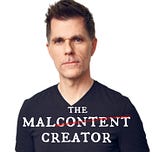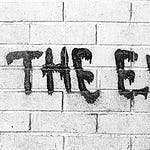Middle age is a chain of surreal moments vacillating wildly between bittersweet nostalgia and existential panic. This year, the moments are even more surreal, because I hit a strange milestone in 2024: I’m 48. That means I’ve lived in the twenty-first century exactly as long as I lived in the twentieth. I am literally straddling the millennium.
I consider myself a child of the nineties, and as the internet assaults me with the thirtieth anniversary editions of all my favorite albums and movies, I feel the blade of time keenly slipping between my ribs. This year, it hit me.
I’m going to die.

In his book Four Thousand Weeks: Time Management For Mortals, Oliver Burkeman lays down some brutal truths. Among them: the average lifespan for a male in the US is 76 years, or about 4,000 weeks. I hope to beat that average; if not, I’m already ten years past my half life. I could be all morbid about it, or I could use the data to squeeze the most out of my last 1,456 weeks.
Oh god, that’s only 28 years.
That number scares the hell out of me. But it also empowers me to make big, guilt-free decisions about how I spend my time. For example: I read about 25 books a year. That means I have only 700 books left. Armed with that reality, I’m not going to waste time on books I don’t cherish. Likewise with movies, games, work projects, relationships, you name it. Time has never been so clearly finite a resource; I’m putting myself on a budget. I want the most out of those 28 years. I only want to do what’s important to me.
But as I started to make decisions about my future, I hit a small snag:
I didn’t know what was important to me.
Discovering My Personal Values

So, I started reading. Essentialism by Greg McKeown forced me to confront the fact that I was spreading myself too thin, sabotaging my effectiveness by trying to be effective at everything. I was letting myself be guided by impulse rather than intention. I couldn’t decide which activities to keep and which to ditch because, as established, I didn’t know what was important to me.
So I Googled “how to determine my personal values” and did a handful of exercises. I came up with a long list and whittled it down to these three:
Creativity
Dependability
Impactfulness
The list surprised me, but it served as an effective filter for how I want to spend my time going forward. Painful though it was, I’ve had cut some things out of my life. I decided to let go of acting, an old dream I’ve spent a decade longing to resurrect. I chose to limit my musical pursuits to paying gigs, and resolved to play video games only when I could do so with friends.
Social Media Retreat
Deep Work by Cal Newport convinced me delete all social media apps from my phone. I knew Twitter was distracting me and disturbing my moods — but I didn’t come to terms with its most insidious effect until Newport pointed it out.
Writing books is hard and takes a long time. Whereas writing tweets is easy and quick! Writing a novel carries a vague promise of possible validation years on. By contrast, tweeting generates immediate Likes, which deliver small but frequent sips, making it much more satisfying (in the short term) to tweet than to bang away at a manuscript that won’t be published for months or years or maybe ever.
But the long-term value of a tweet is almost zero. Less than zero, if you count the opportunity cost. After reading Deep Work , I deleted all my tweets, parked my account, changed my password, and haven’t looked back. I kept IG and FB, but my relationship with both is much reduced and fundamentally changed.

The third book in my holy trinity of personal development was Atomic Habits by James Clear. He taught me that:
“You do not rise to the level of your goals. You fall to the level of your systems.”
-James Clear
I realized I had allowed my circumstances to design my systems, that I was at the mercy of my own habits. I began identifying which habits worked for me, and which were destroying me.
Now, the big picture was taking shape. I had goals, values, and intentions. I had identified my bad habits and made plans to change them. But to move forward, I needed to get tactical, and that’s where my most powerful takeaway came into play:
Reclaiming My Attention
I needed to reclaim my attention.
Thanks partially to the work of Andrew Huberman (and other podcasters, authors, and scientists) I came to accept what I’ve been resisting for years: that I have a dopamine addiction. I’ve blamed it on everything: kids, COVID, bipolar disorder, you name it. But by admitting that my willpower is no match for The Algorithm, I’ve empowered myself to get beyond it.
I found Opal. It’s an app- and website-blocking application that gamifies limiting your screen time. When you set up your profile, you’re confronted with some numbers: based on your age and current usage, the app estimates how much of your life (in YEARS) you’ll spend staring at your phone. My number was HORRIFYING. Since installing Opal, I’ve reduced my screen time by 36%.
Next, I tried five different habit-building apps and finally settled on Way of Life. I track a number of habits (Writing, Exercising, Meditation, etc.) and when I hit a streak, I’m rewarded with pleasing colors and sounds (classical conditioning at its most basic.)
I also meditate daily with Waking Up and keep an evening gratitude journal.
Since initiating these changes, I have:
Made huge progress on my current writing project
Lost fat and gained muscle
Improved the stability of my moods
Become less distracted and more engaged
Read more books
Become less clumsy
Become more organized
And more
Trading Dread for Enthusiasm
It hasn’t been a pleasant experience, suddenly realizing I’ve left my youth behind in another century. I’ve stared down the barrel of mortality and reckoned with the hard fact of how I was spending my time, and therefore how I was on track to spend the rest of my life. But seeing the numbers on the page, writing about what I was doing and what I wanted to do — it was a powerful experience. And, day by day, I’m replacing that existential dread with a profound enthusiasm for the moment.
Thanks for taking the time to read my annual report. Below is a list of the books and apps that helped. Below that is my official failures/success humblebrag report. Feel free to skip that.
What Helped
Waking Up (Free accounts available!)
Humblebrag Report
Personal Failures
Spent too little time with parents
Missed my reading goal by 10 books
Did not reach fitness goal
Professional Failures
Did not meet writing time goal
Failed to complete manuscript
Did not finish short film
Did not book any acting gigs
Did not reach income goal
Personal Achievements
Read 30 books
Watched 25 films
Played Video games with my friends weekly
Served on the board of my local conservancy group, Hills for Everyone
Set aside money for retirement
Visited Bali with my family
Played music with my brother from another 3 times (up from zero the last three years)
Worked out 122 times
Reduced my screen time by 36%
Gained 11 lbs. of muscle lost 3 lbs. of fat
Mediated 200ish times
Learned 4 songs on guitar
Helped my daughter with homework 150 times
Professional Achievements
Added 17k words to a second draft before starting over
Wrote my first full novel outline
Added 50k words to a 2.5 draft
Wrote, produced, and starred in an original short film
Performed 46 live shows in three states to thousands of people
Participated in 50 episodes of streaming game series on NG4OM
Produced 13 episodes of The Hero’s Journey Podcast
Presented at Career Day for my local middle school
Attended 2 personal/professional development seminars
Signed books twice at my local B&N
Goals for Level 48
Finish my WIP and get it on sub
Develop and pitch my non-novel project
Spend more quality time with family
Gain 5 lbs. of muscle
Grow my podcast audience









